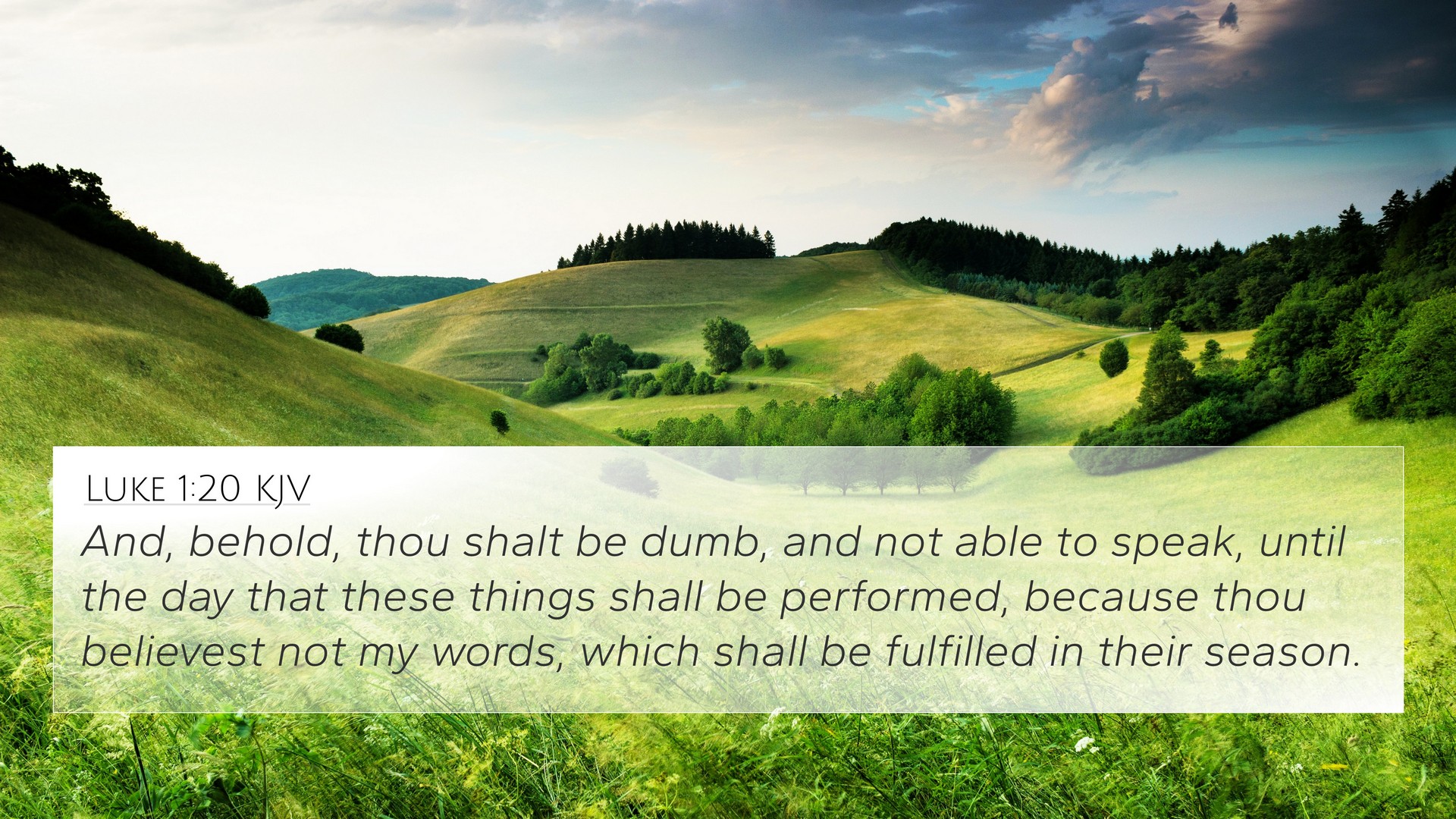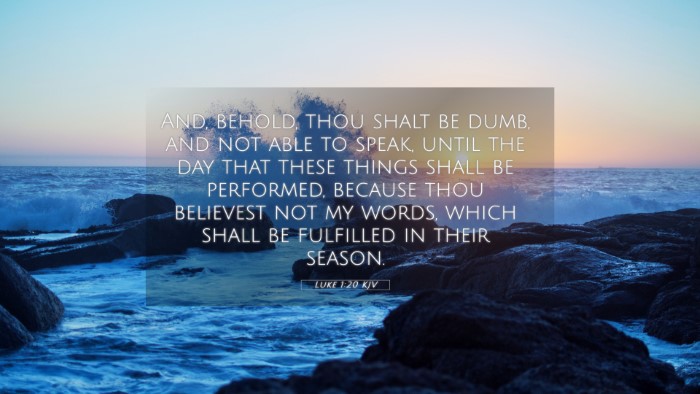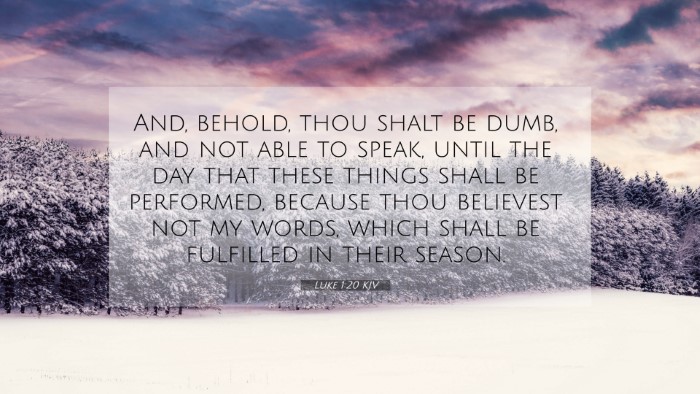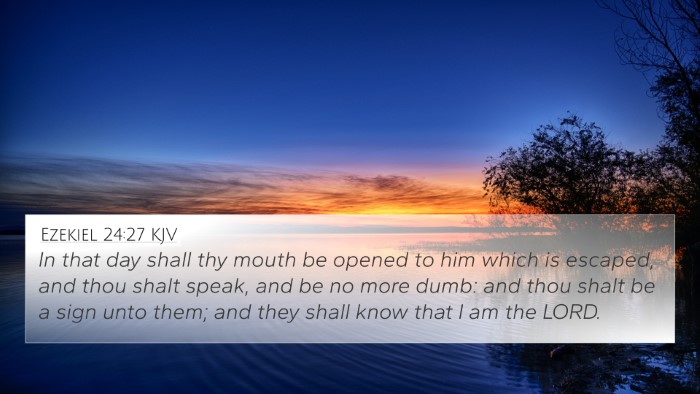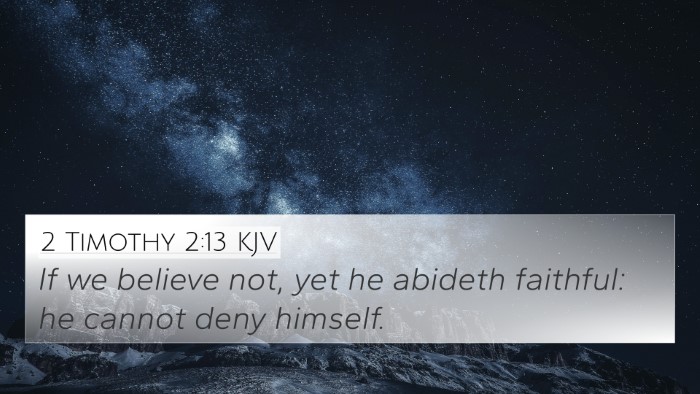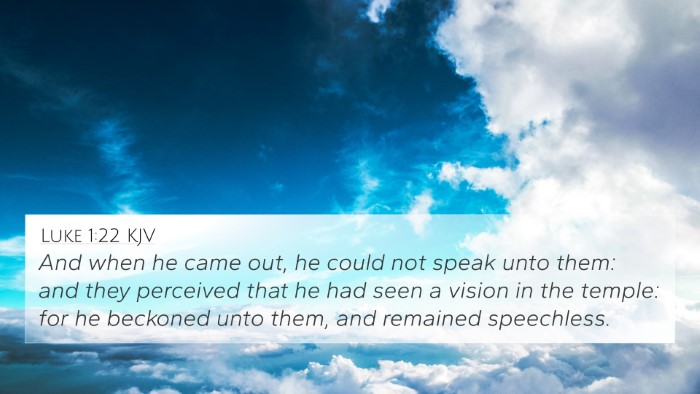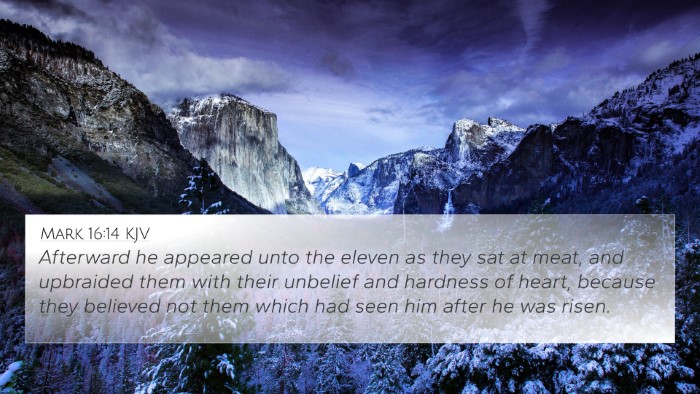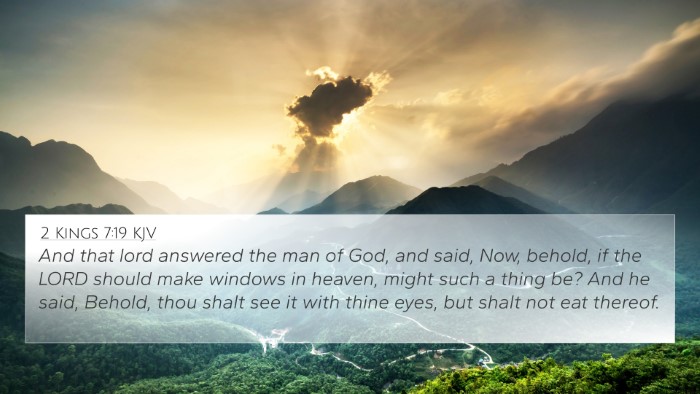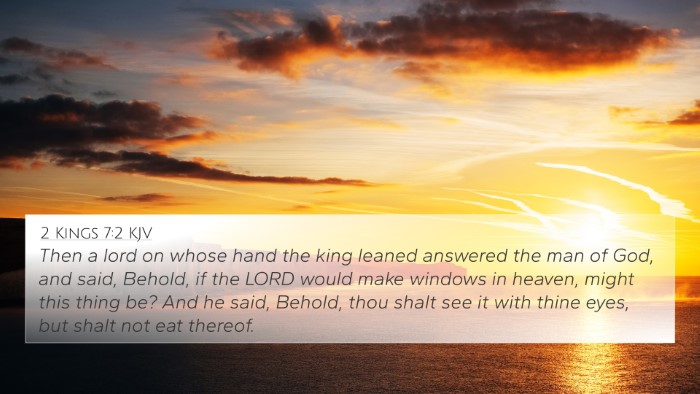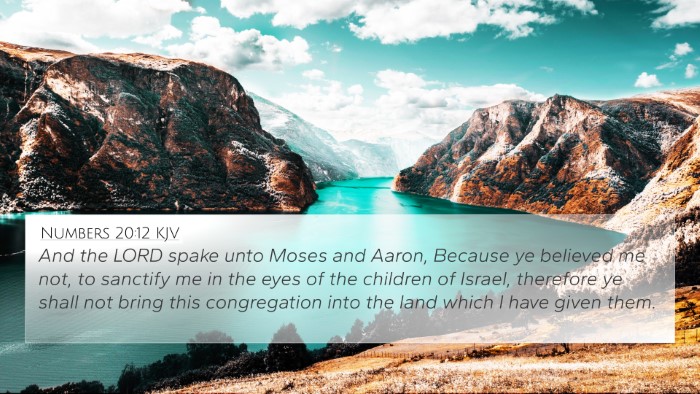Understanding Luke 1:20
In Luke 1:20, the verse states, "And behold, you will be silent and unable to speak until the day that these things take place, because you did not believe my words, which will be fulfilled in their time." This verse carries profound implications and lessons regarding faith, divine timing, and the consequences of doubt.
Verse Context
This verse is situated in the narrative of Zechariah's encounter with the angel Gabriel. As a priest, Zechariah receives a divine message regarding the birth of his son, John the Baptist. His disbelief leads to a direct consequence: his muteness until the fulfillment of the prophecy.
Commentary Insights
Matthew Henry emphasizes the nature of God's communication. He notes that God’s declarations are not mere suggestions but certainties that will inevitably come to pass. The punishment of Zechariah's silence illustrates how seriously God regards faith and obedience.
Albert Barnes expands on the idea of divine timing, highlighting that God's promises are always fulfilled, often at the right moment as part of His greater plan. He argues that Zechariah's temporary inability to speak serves not only as a punishment but as a preparation for the eventual announcement of John's miraculous birth.
Adam Clarke shares additional insights regarding the significance of faith. He explains that Zechariah's initial doubt reflects a human tendency to question the impossible. Clarke draws attention to the method by which God communicates and the necessary attitude of readiness to believe even when circumstances seem contrary.
Thematic Connections
- Faith and Doubt: Zechariah's silence is a direct response to his doubt. This theme runs parallel in many biblical accounts, such as Moses at the burning bush (Exodus 3:11) and Thomas's doubt about Jesus' resurrection (John 20:25).
- Divine Communication: This event contrasts with God’s direct communication with other biblical figures, emphasizing the importance of receptive faith.
- Punishment and Grace: Zechariah's punishment is a prelude to the grace and mercy that will be shown through the birth of John.
Bible Verse Cross-References
- Exodus 4:10-12 - Moses expresses doubt about speaking to Pharaoh.
- John 20:24-29 - Thomas doubts the resurrection until seeing Jesus.
- Romans 4:20-21 - Abraham's faith in God's promises without wavering.
- Hebrews 11:6 - Importance of faith in believing God’s existence and rewards.
- Matthew 11:1-6 - Jesus commends those who believe without seeing.
- 1 Peter 1:8 - Faith in Christ leads to joy and hope, even without seeing Him.
- James 1:6 - Encouragement to ask in faith without doubt.
Interpreting Spiritual Lessons
This verse invites believers to reflect on their own faith journeys and the role of divine timing in their lives. The narrative teaches that doubts can lead to God’s discipline but also offers the opportunity for deeper understanding and eventual joy when His word is fulfilled.
Conclusion
Luke 1:20 serves as both a warning against disbelief and a reminder of the certainty of God’s promises. Through cross-referencing other scriptures, we can see a rich tapestry of connections that illustrate the importance of faith, the consequences of doubt, and the faithfulness of God in His promises.
